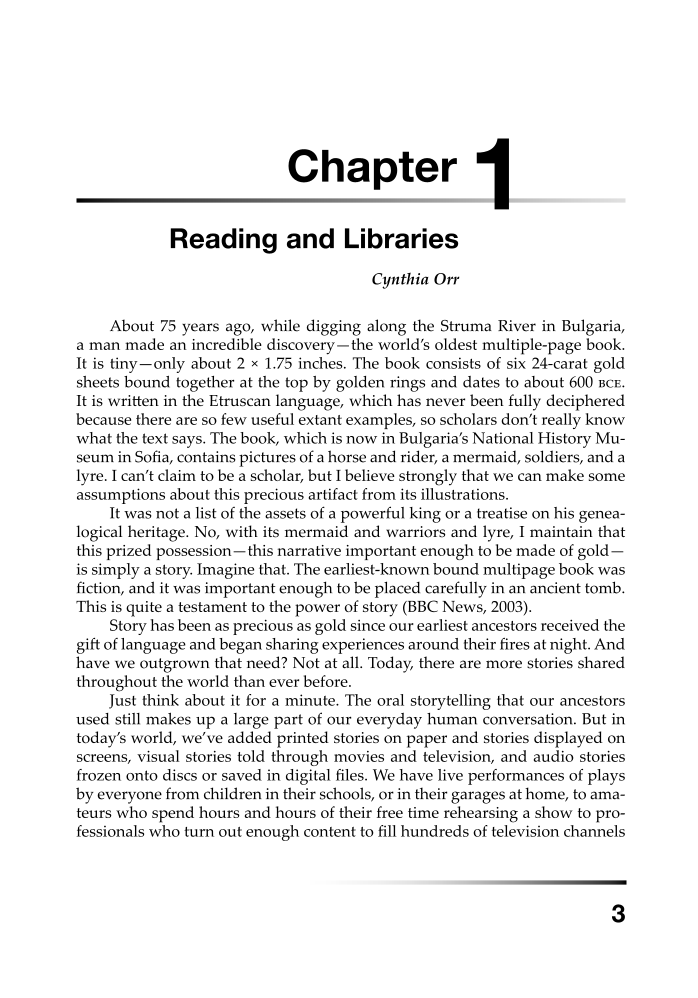3 Chapter 1 Reading and Libraries Cynthia Orr About 75 years ago, while digging along the Struma River in Bulgaria, a man made an incredible discovery—the world’s oldest multiple-page book. It is tiny—only about 2 × 1.75 inches. The book consists of six 24-carat gold sheets bound together at the top by golden rings and dates to about 600 bce. It is wriĴen in the Etruscan language, which has never been fully deciphered because there are so few useful extant examples, so scholars don’t really know what the text says. The book, which is now in Bulgaria’s National History Mu- seum in Sofia, contains pictures of a horse and rider, a mermaid, soldiers, and a lyre. I can’t claim to be a scholar, but I believe strongly that we can make some assumptions about this precious artifact from its illustrations. It was not a list of the assets of a powerful king or a treatise on his genea- logical heritage. No, with its mermaid and warriors and lyre, I maintain that this prized possession—this narrative important enough to be made of gold— is simply a story. Imagine that. The earliest-known bound multipage book was fi ction, and it was important enough to be placed carefully in an ancient tomb. This is quite a testament to the power of story (BBC News, 2003). Story has been as precious as gold since our earliest ancestors received the giĞ of language and began sharing experiences around their fi res at night. And have we outgrown that need? Not at all. Today, there are more stories shared throughout the world than ever before. Just think about it for a minute. The oral storytelling that our ancestors used still makes up a large part of our everyday human conversation. But in today’s world, we’ve added printed stories on paper and stories displayed on screens, visual stories told through movies and television, and audio stories frozen onto discs or saved in digital fi les. We have live performances of plays by everyone from children in their schools, or in their garages at home, to ama- teurs who spend hours and hours of their free time rehearsing a show to pro- fessionals who turn out enough content to fi ll hundreds of television channels
Document Details My Account Print multiple pages
Print
You have printed 0 times in the last 24 hours.
Your print count will reset on at .
You may print 0 more time(s) before then.
You may print a maximum of 0 pages at a time.


























































































































































































































































































































































































































































































